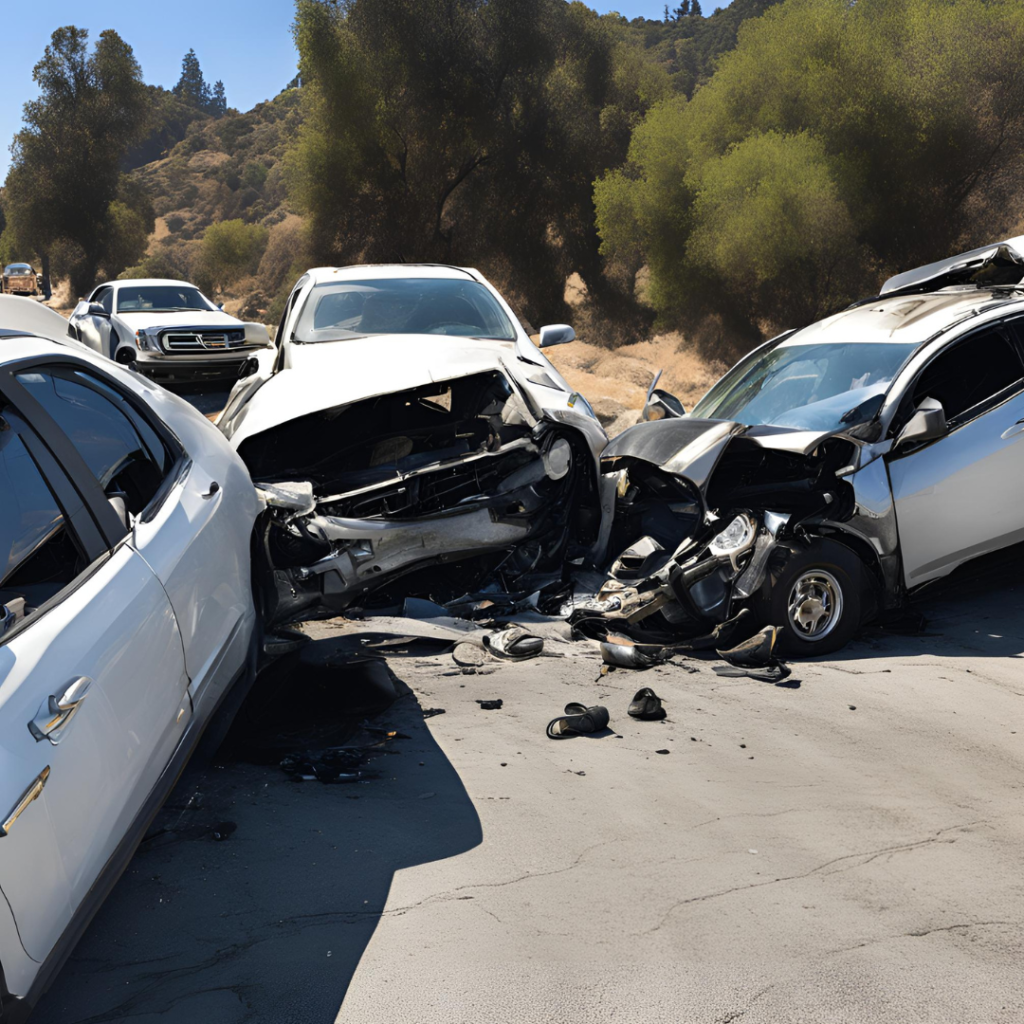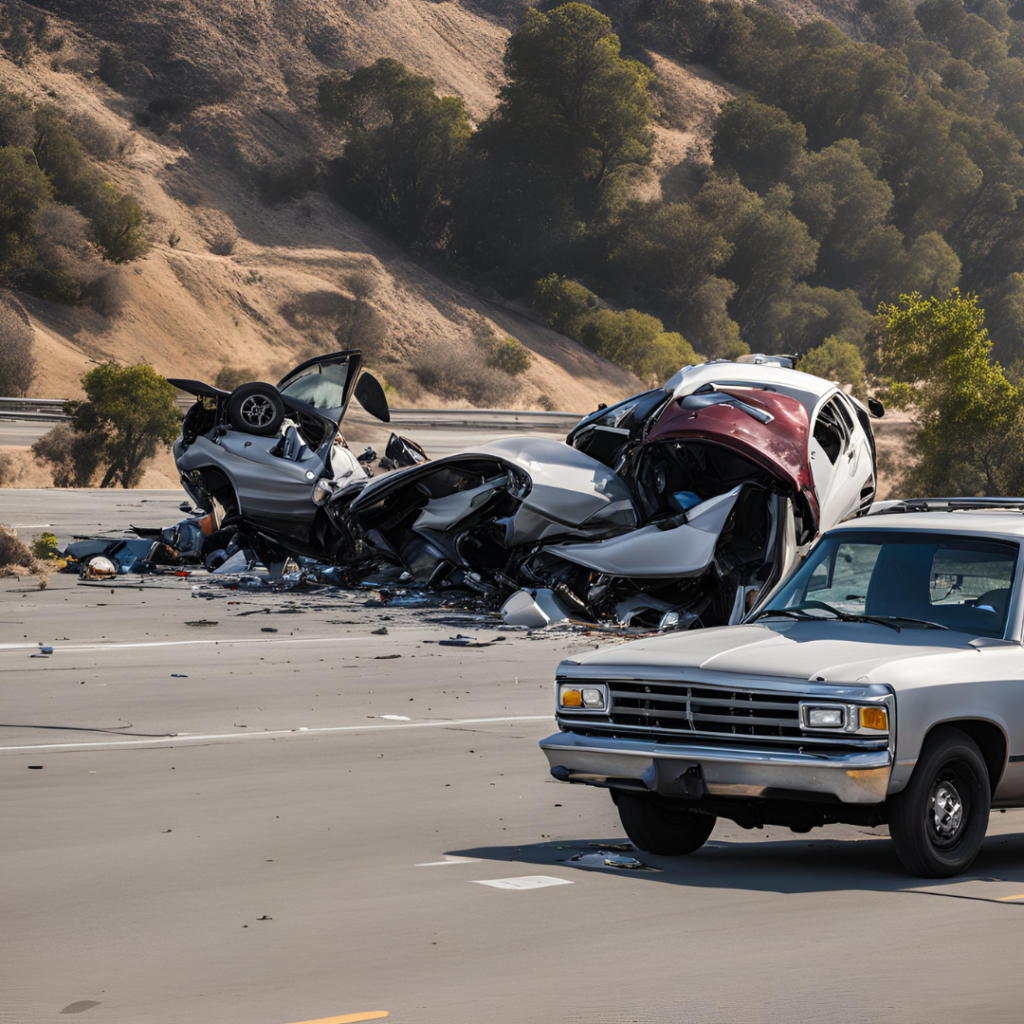Auto accidents can have profound and lasting impacts on victims’ lives, from physical injuries to financial hardships. In California, navigating the legal system to seek compensation for these impacts requires the expertise of an auto accident lawyer. This article explores the various roles that auto accident lawyers play in California’s legal system, from initial case preparation to courtroom advocacy, providing a comprehensive understanding of their importance in the legal process.
The Role of Auto Accident Lawyers in California’s Legal System
1. Initial Consultation and Case Evaluation
When you first meet with an auto accident lawyer, their primary role is to evaluate the details of your case. This involves:
- Listening to Your Story: Understanding what happened in the accident, including the sequence of events and the impact on your life.
- Reviewing Evidence: Examining documents such as police reports, medical records, and witness statements.
- Assessing Your Case’s Strength: Determining the viability of your claim based on evidence and legal standards.
2. Investigating the Accident
A significant part of an auto accident lawyer’s role is to thoroughly investigate the accident. This includes:
- Collecting Evidence: Gathering evidence like accident scene photos, surveillance footage, and expert opinions.
- Interviewing Witnesses: Speaking with witnesses to obtain statements that support your case.
- Analyzing Reports: Reviewing police reports, accident reconstruction reports, and medical records to build a comprehensive case.
3. Handling Communication with Insurance Companies
Auto accident lawyers handle all interactions with insurance companies to ensure that you receive fair compensation. Their responsibilities include:
- Negotiating Settlements: Engaging with insurance adjusters to negotiate a settlement that covers your medical expenses, lost wages, and other damages.
- Filing Claims: Ensuring that all necessary claims are filed in a timely manner.
- Protecting Your Rights: Making sure that insurance companies do not take advantage of you or offer inadequate settlements.
4. Legal Research and Case Strategy
An essential role of an auto accident lawyer is to conduct legal research and develop a case strategy. This involves:
- Researching Laws and Regulations: Understanding California’s traffic laws, negligence standards, and other legal regulations that impact your case.
- Developing Legal Strategies: Creating a plan for how to approach the case, including whether to negotiate a settlement or proceed to trial.
5. Preparing Legal Documents
Auto accident lawyers prepare and file various legal documents necessary for your case, such as:
- Drafting Complaints: Writing the initial complaint that outlines your allegations against the at-fault party.
- Filing Motions: Submitting motions to request specific actions from the court, such as evidence production or changes to the case schedule.
- Managing Deadlines: Ensuring all documents and filings meet legal deadlines.

6. Representing You in Court
If a settlement cannot be reached, your auto accident lawyer will represent you in court. Their duties include:
- Presenting Evidence: Introducing evidence and arguments to support your case.
- Examining Witnesses: Questioning witnesses to reinforce your claims.
- Making Legal Arguments: Presenting legal arguments to persuade the judge or jury in your favor.
7. Negotiating Settlements
Even if your case goes to trial, negotiation is an ongoing process. Lawyers work to:
- Achieve Fair Compensation: Strive for a settlement that covers all your damages and future needs.
- Assess Settlement Offers: Evaluate offers from the opposing party and advise you on whether to accept or reject them.
8. Managing Case Costs and Fees
Auto accident lawyers manage the financial aspects of your case, including:
- Contingency Fees: Most lawyers work on a contingency fee basis, meaning they only get paid if you win your case.
- Managing Expenses: Handling case-related expenses like filing fees and expert witness costs, which are often deducted from the settlement or awarded damages.
9. Advising on Legal Options
Your lawyer will provide guidance on the best legal options available to you, including:
- Explaining Legal Processes: Clarifying the steps involved in pursuing your claim and what to expect.
- Discussing Alternatives: Offering alternative solutions, such as arbitration or mediation, if a trial is not the best option.
10. Offering Emotional Support
Dealing with the aftermath of an auto accident can be emotionally draining. Your lawyer may also:
- Provide Reassurance: Offering support and reassurance throughout the legal process.
- Act as a Liaison: Communicating with other parties and professionals involved in your case to alleviate your stress.
11. Ensuring Compliance with Legal Procedures
Auto accident lawyers ensure that all legal procedures are followed, which includes:
- Meeting Legal Deadlines: Ensuring that all filings, hearings, and other legal requirements are completed on time.
- Following Court Orders: Adhering to court orders and procedural rules throughout the case.
12. Building a Strong Case
A significant role of your lawyer is to build a strong, evidence-based case. This includes:
- Gathering Expert Opinions: Consulting with experts, such as accident reconstruction specialists or medical professionals.
- Organizing Evidence: Systematically organizing evidence and documentation to support your case.
13. Handling Legal Research
Lawyers conduct thorough legal research to support your case, including:
- Researching Precedents: Investigating past cases with similar circumstances to guide your legal strategy.
- Staying Updated: Keeping up with changes in the law that could affect your case.
14. Negotiating with Opposing Counsel
Your lawyer will negotiate directly with the opposing party’s legal team to:
- Discuss Settlement Terms: Engaging in discussions to reach a mutually agreeable settlement.
- Handle Disputes: Resolving disagreements and negotiating terms to avoid prolonged litigation.

15. Preparing for Trial
If your case goes to trial, your lawyer will prepare by:
- Developing a Trial Plan: Creating a detailed plan for presenting your case in court.
- Preparing Witnesses: Preparing witnesses for testimony and ensuring they are ready for cross-examination.
16. Advocating for Your Best Interests
Throughout the legal process, your lawyer’s primary role is to advocate for you, which includes:
- Representing Your Interests: Ensuring that your rights and interests are protected.
- Fighting for Fair Compensation: Working to achieve the best possible outcome for you.
17. Educating You About the Legal Process
Your lawyer will help you understand the legal process by:
- Explaining Legal Terms: Breaking down complex legal jargon into understandable terms.
- Updating You on Case Progress: Keeping you informed about the status of your case and next steps.
18. Handling Administrative Tasks
Lawyers manage various administrative tasks associated with your case, such as:
- Document Filing: Submitting legal documents to the court.
- Managing Correspondence: Handling communication with other parties involved in the case.
19. Providing Legal Recommendations
Based on their expertise, your lawyer will offer:
- Case Strategies: Recommending the best strategies for your case based on their legal knowledge.
- Legal Advice: Offering guidance on decisions related to your claim and case management.
20. Ensuring Ethical Standards
Auto accident lawyers adhere to high ethical standards, including:
- Maintaining Professional Conduct: Ensuring that all actions and decisions comply with legal ethics and professional standards.
- Acting in Good Faith: Representing you honestly and working towards a just resolution.
FAQ: The Role of Auto Accident Lawyers in California’s Legal System
Q1: What is the first step an auto accident lawyer takes when you hire them?
A1: The first step is an initial consultation where the lawyer evaluates your case, reviews evidence, and discusses potential strategies.
Q2: How does an auto accident lawyer investigate the accident?
A2: They collect evidence, interview witnesses, and review reports to build a strong case for you.
Q3: What does an auto accident lawyer do with insurance companies?
A3: They handle negotiations, file claims, and ensure that your rights are protected during the claims process.
Q4: How does an auto accident lawyer develop a case strategy?
A4: They conduct legal research, review evidence, and create a strategy based on the strengths and weaknesses of your case.
Q5: What types of legal documents does an auto accident lawyer prepare?
A5: They prepare complaints, file motions, and manage other legal documents necessary for your case.
Q6: What role does an auto accident lawyer play in court?
A6: They represent you in court, present evidence, examine witnesses, and argue on your behalf.
Q7: How do auto accident lawyers negotiate settlements?
A7: They negotiate with insurance adjusters and opposing counsel to achieve a fair settlement for your damages.
Q8: How do auto accident lawyers manage case costs?
A8: They work on a contingency fee basis and manage expenses related to the case, which are often covered by the settlement.
Q9: What legal options do auto accident lawyers discuss with clients?
A9: They explain legal processes, potential outcomes, and alternative solutions like arbitration or mediation.
Q10: How do auto accident lawyers offer emotional support?
A10: They provide reassurance, communicate with other parties, and help manage the stress of the legal process.

Q11: What are some of the legal procedures that auto accident lawyers handle?
A11: They manage deadlines, file documents, and ensure compliance with legal procedures.
Q12: How do auto accident lawyers build a strong case?
A12: They gather evidence, consult experts, and organize documentation to support your claims.
Q13: What kind of legal research do auto accident lawyers perform?
A13: They research relevant laws, past case precedents, and current legal standards.
Q14: How do auto accident lawyers negotiate with opposing counsel?
A14: They discuss settlement terms, resolve disputes, and work towards an agreement that benefits you.
Q15: What preparation is required if a case goes to trial?
A15: They develop a trial strategy, prepare witnesses, and plan how to present the case in court.
Q16: How do auto accident lawyers advocate for clients?
A16: They represent your interests, fight for fair compensation, and ensure your rights are protected.
Q17: How do auto accident lawyers educate clients about the legal process?
A17: They explain legal terms, update you on case progress, and answer any questions you may have.
Q18: What administrative tasks do auto accident lawyers handle?
A18: They manage document filing, handle correspondence, and oversee administrative aspects of the case.
Q19: What kind of recommendations do auto accident lawyers provide?
A19: They offer legal strategies, case management advice, and recommendations based on their expertise.
Q20: What ethical standards do auto accident lawyers follow?
A20: They maintain professional conduct, act in good faith, and adhere to legal and ethical guidelines.
